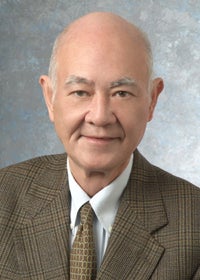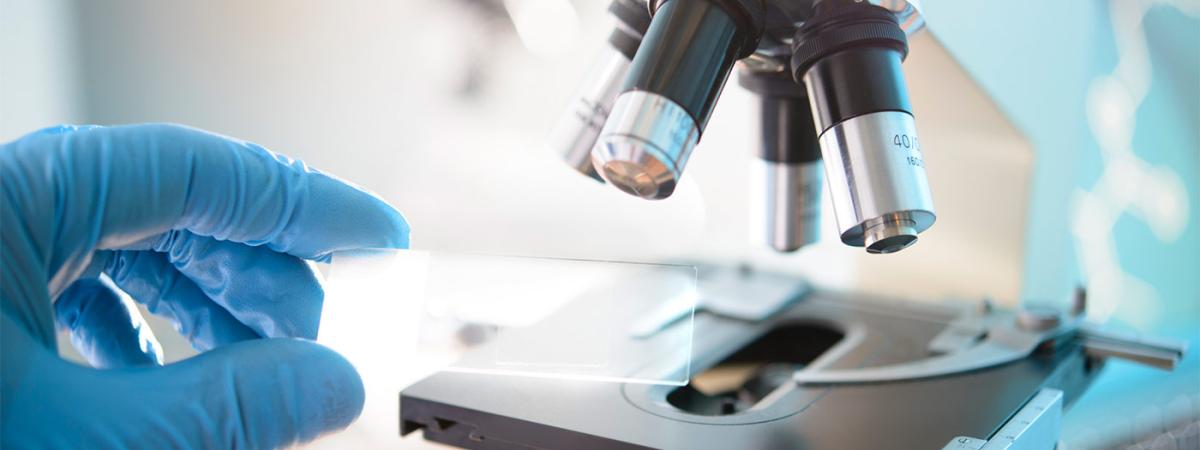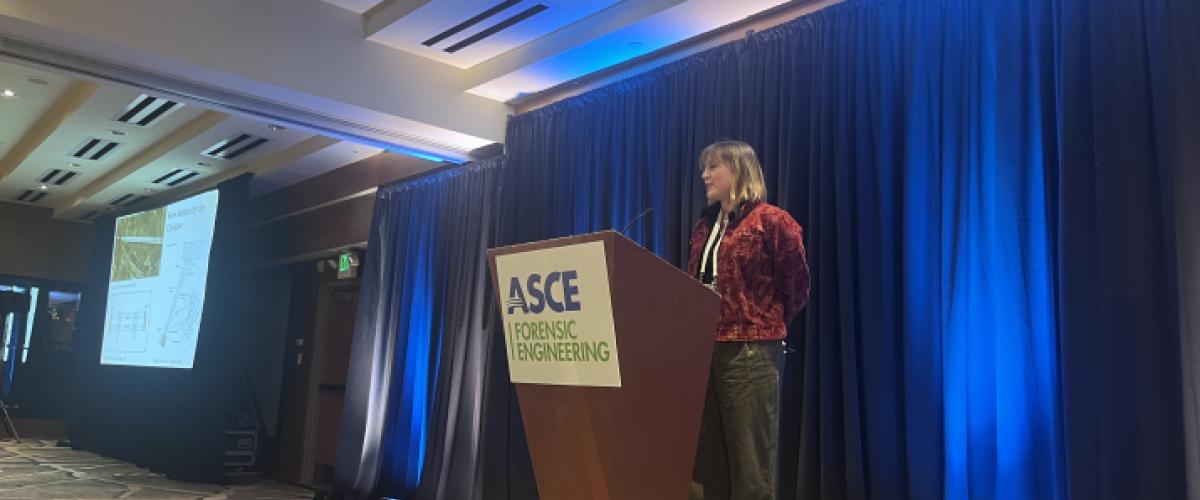Case Western Reserve University and ICBM Medical Inc. signed a one-year option-to-license agreement to commercially advance a low-cost, rapid catalytic biomarker technology that improves patient screening and monitoring for a range of clinical conditions, from concussion to prostate cancer.
By leveraging existing biomarkers and developing new ones, ICBM Medical plans to commercialize its first clinical product applications, while establishing a pipeline for future biosensors. These biosensors are designed to outperform current tests more quickly and at a lower cost.
Distinguished University Professor Chung-Chiun (C.C.) Liu, the Wallace R. Persons Professor of Sensor Technology and Control in Case Western Reserve’s Department of Chemical Engineering, has been developing the technology for more than eight years.
 Chung-Chiun Liu
The technology has been prototyped and tested by Liu, director of the university’s Electronics Design Center, and his colleagues from departments of chemistry and family medicine. Case Western Reserve has filed multiple patent applications on a range of clinical uses, and just recently received notice of allowance for prostate cancer detection in both the United States and European Union.
“Because of our belief in C.C. and his work, we’ve invested substantially in intellectual property and other enabling resources to give his technology its best chance of success,” said Mike Allan, senior licensing officer with the university’s Technology Transfer Office. “We’re pleased to work with ICBM on this mutual objective.”
ICBM [Instantaneous Catalytic BioMarkers] Medical, established last year and located in Cleveland near Case Western Reserve, was founded to offer innovative, point-of-use diagnostic medical devices that dramatically advance disease detection and management at affordable costs, ultimately allowing for earlier intervention and improved patient outcome.
“We are thrilled at the progress that ICBM Medical and Case Western Reserve University have achieved in such a short time, from securing the option agreement to completing our technology translation assessment and development planning for commercialization,” said Stephanie Harrington, ICBM Medical president and chief executive officer. “With initial funding secured and additional funding efforts well underway, we are on plan to achieve market entry of our first biosensor within two years.”
An option agreement provides a company a time-limited right to obtain a full license agreement. A license option typically is granted to a company interested in further evaluation of the technology before entering into a full license agreement that allows the company to commercially market it.
Taipei Medical University (TMU) in Taiwan has been an active partner and collaborator with Liu, Case Western Reserve and now ICBM Medical. In addition to ongoing in-kind clinical testing of the biosensors, TMU has committed to invest $500,000 in ICBM Medical.
Recently, Liu and ICBM Medical were notified that The Ohio Third Frontier Technology Validation and Start-up Fund will provide $150,000 to help advance the detection technology from the lab to commercial markets.
Chung-Chiun Liu
The technology has been prototyped and tested by Liu, director of the university’s Electronics Design Center, and his colleagues from departments of chemistry and family medicine. Case Western Reserve has filed multiple patent applications on a range of clinical uses, and just recently received notice of allowance for prostate cancer detection in both the United States and European Union.
“Because of our belief in C.C. and his work, we’ve invested substantially in intellectual property and other enabling resources to give his technology its best chance of success,” said Mike Allan, senior licensing officer with the university’s Technology Transfer Office. “We’re pleased to work with ICBM on this mutual objective.”
ICBM [Instantaneous Catalytic BioMarkers] Medical, established last year and located in Cleveland near Case Western Reserve, was founded to offer innovative, point-of-use diagnostic medical devices that dramatically advance disease detection and management at affordable costs, ultimately allowing for earlier intervention and improved patient outcome.
“We are thrilled at the progress that ICBM Medical and Case Western Reserve University have achieved in such a short time, from securing the option agreement to completing our technology translation assessment and development planning for commercialization,” said Stephanie Harrington, ICBM Medical president and chief executive officer. “With initial funding secured and additional funding efforts well underway, we are on plan to achieve market entry of our first biosensor within two years.”
An option agreement provides a company a time-limited right to obtain a full license agreement. A license option typically is granted to a company interested in further evaluation of the technology before entering into a full license agreement that allows the company to commercially market it.
Taipei Medical University (TMU) in Taiwan has been an active partner and collaborator with Liu, Case Western Reserve and now ICBM Medical. In addition to ongoing in-kind clinical testing of the biosensors, TMU has committed to invest $500,000 in ICBM Medical.
Recently, Liu and ICBM Medical were notified that The Ohio Third Frontier Technology Validation and Start-up Fund will provide $150,000 to help advance the detection technology from the lab to commercial markets.
 Chung-Chiun Liu
The technology has been prototyped and tested by Liu, director of the university’s Electronics Design Center, and his colleagues from departments of chemistry and family medicine. Case Western Reserve has filed multiple patent applications on a range of clinical uses, and just recently received notice of allowance for prostate cancer detection in both the United States and European Union.
“Because of our belief in C.C. and his work, we’ve invested substantially in intellectual property and other enabling resources to give his technology its best chance of success,” said Mike Allan, senior licensing officer with the university’s Technology Transfer Office. “We’re pleased to work with ICBM on this mutual objective.”
ICBM [Instantaneous Catalytic BioMarkers] Medical, established last year and located in Cleveland near Case Western Reserve, was founded to offer innovative, point-of-use diagnostic medical devices that dramatically advance disease detection and management at affordable costs, ultimately allowing for earlier intervention and improved patient outcome.
“We are thrilled at the progress that ICBM Medical and Case Western Reserve University have achieved in such a short time, from securing the option agreement to completing our technology translation assessment and development planning for commercialization,” said Stephanie Harrington, ICBM Medical president and chief executive officer. “With initial funding secured and additional funding efforts well underway, we are on plan to achieve market entry of our first biosensor within two years.”
An option agreement provides a company a time-limited right to obtain a full license agreement. A license option typically is granted to a company interested in further evaluation of the technology before entering into a full license agreement that allows the company to commercially market it.
Taipei Medical University (TMU) in Taiwan has been an active partner and collaborator with Liu, Case Western Reserve and now ICBM Medical. In addition to ongoing in-kind clinical testing of the biosensors, TMU has committed to invest $500,000 in ICBM Medical.
Recently, Liu and ICBM Medical were notified that The Ohio Third Frontier Technology Validation and Start-up Fund will provide $150,000 to help advance the detection technology from the lab to commercial markets.
Chung-Chiun Liu
The technology has been prototyped and tested by Liu, director of the university’s Electronics Design Center, and his colleagues from departments of chemistry and family medicine. Case Western Reserve has filed multiple patent applications on a range of clinical uses, and just recently received notice of allowance for prostate cancer detection in both the United States and European Union.
“Because of our belief in C.C. and his work, we’ve invested substantially in intellectual property and other enabling resources to give his technology its best chance of success,” said Mike Allan, senior licensing officer with the university’s Technology Transfer Office. “We’re pleased to work with ICBM on this mutual objective.”
ICBM [Instantaneous Catalytic BioMarkers] Medical, established last year and located in Cleveland near Case Western Reserve, was founded to offer innovative, point-of-use diagnostic medical devices that dramatically advance disease detection and management at affordable costs, ultimately allowing for earlier intervention and improved patient outcome.
“We are thrilled at the progress that ICBM Medical and Case Western Reserve University have achieved in such a short time, from securing the option agreement to completing our technology translation assessment and development planning for commercialization,” said Stephanie Harrington, ICBM Medical president and chief executive officer. “With initial funding secured and additional funding efforts well underway, we are on plan to achieve market entry of our first biosensor within two years.”
An option agreement provides a company a time-limited right to obtain a full license agreement. A license option typically is granted to a company interested in further evaluation of the technology before entering into a full license agreement that allows the company to commercially market it.
Taipei Medical University (TMU) in Taiwan has been an active partner and collaborator with Liu, Case Western Reserve and now ICBM Medical. In addition to ongoing in-kind clinical testing of the biosensors, TMU has committed to invest $500,000 in ICBM Medical.
Recently, Liu and ICBM Medical were notified that The Ohio Third Frontier Technology Validation and Start-up Fund will provide $150,000 to help advance the detection technology from the lab to commercial markets.





